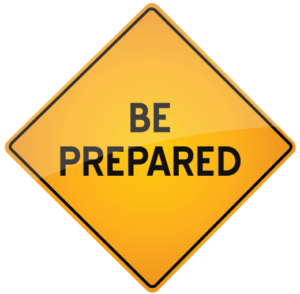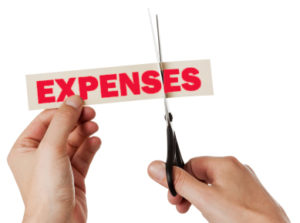We are going through unprecedented times like never before with the Covid-19 situation and the news about job losses. Unlike the influenza flu which had happened in Spain a century ago, this time it is different. The impact of Covid is Global. India took a brave decision by keeping a lockdown in the entire country, reviewing the situation, and then taking their next course of action accordingly. We have done a tremendous job in saving lives but that was at a cost! The economy suffered significantly since a lot of businesses went out of the job immediately. While works like Information technology could continue from home, the manufacturing and the agricultural sectors suffered a lot. So, also the other industries like Tourism, restaurants business, etc. India has been at the cross roads where some decisions had to be taken like the relaxation of the lockdown, else there could have been irreparable damage for the economy.

Certain businesses that could not make any revenues are finding it difficult to make payments for the wages. Besides, other sectors which are dependent on exports are finding it difficult since those countries too got impacted and therefore the reduction in work. So, this could mean a loss of jobs. There was a report from CNN Business in March 2020 that more than half of American jobs could be at risk due to coronavirus. Though, recently there has been a sharp reduction of the unemployment rates when bold decisions were taken to sustain the economy even though the impact of the Corona virus and the deaths continued.
A report from Economic Times on 22nd May 2020 mentioned that there could be 70,000 job losses in the telecom industry in India, due to Covid-19. Then there was another CMIE report talking about 27 million youth in the age group of 20-30 years lost jobs in April. Similarly, there have been other reports too. With the social security in India, not being the strongest, and even more so in the unorganised sector, it is a greater degree of concern.
While we are now exposed more to negative news thanks to the bombarding of information through various media – print, television and online social media. Sometimes, it blurs our decision-making skills to think about the future and so that is a topic of my discussion today.
In one of my previous infographics, I spoke about how these three months of lockdown would have given a good indication to us about our discretionary and non-discretionary expenses. Sometimes, we do not know where our money gets spent and we end up living paycheck to paycheck. We can do that self-assessment now and see what expenses need to be curbed.

I have always mentioned about the need to have an emergency fund which should take care of six months of expenses (including all EMIs). This need is much stronger now and that money could be kept in a combination of the savings bank, fixed deposits, and liquid funds. Do know that continuation to pay EMIs and credit card bills is very important since otherwise, it can significantly impact on the credit score which would restrict future borrowings if there is a need. The Bonus: If the emergency fund is in place and we know that there is liquidity to pay bills for the next 6 months, we do not get pressurised to accept any job which comes in the way, even at a lower grade or lower income. We can then wait for the perfect job for our potential which gets us career satisfaction.
It is very important to ensure that you have sufficient sum assured for the term insurance. How much is sufficient is what I will discuss in my future blogs, or you could contact me for that discussion. Getting term insurance when a person is unemployed would be extremely difficult. This anyways needs to be considered whether or not we are into the current situation. Term insurance helps us in protecting the goals which we have set for our family. They would still be met, even if there is an eventuality and we are no more if term insurance is purchased. Remember to also endorse it with Married Women’s Protection Act (MWPA). It is a very small amount of money for this peace of mind!
Many people have a false belief that if we are employed and if we have corporate health insurance, we do not need personal health insurance. But this is available in the private sector only till the time we are employed with them. What about the post-retirement years when the need could be more? If we want to buy it during that time, it will be extremely expensive and also with a co-pay clause. Or worse, we may not get it at that time! Also, what if there is a hospitalisation when we are between jobs or if unemployed. So, taking your health insurance during these uncertain times becomes even more important and should not be ignored.
We should get our financial situation in order and do our goal-based planning to determine how much money needs to be invested against each of the goals. Then work backwards, calculate the monthly amount and do those investments, taking the power of compounding to your advantage. If you find it overwhelming, or are too busy to find time for it, work with your respective financial planner and get this done at the earliest. Pay yourselves first!
The Global environment has been changing very fast. Jobs and companies which are the leaders lose their competitive position if they don’t keep up with time. Nokia and Xerox have been such examples that most of us know. Similarly, it applies to people. The skills may not be relevant and there could be a need to add more value. Automation could be taking up regular manual skills jobs and therefore personal development becomes important and reskilling ourselves and being at par with the changing times. Investing in ourselves could be the best investment for long-term career growth and fulfillment.
The company you are working for could be making a difficult decision to close down or there could be a merger or a takeover. What if there is a job loss and you get communicated about it. What needs to be done now?
While this could be something you had not anticipated that could happen to you, I think what we do after this, coping with the job loss positively, is even more important. After the initial shock has subsidised, remember that it could be circumstances and you may not have been an issue here. So, there is a need to avoid self-blame or blaming others and just move on.

This could be a good opportunity to do a self-assessment of your strengths, figure out what opportunities are available in your career and then do a re-boot. Would you have been happier if you were doing something else, but got into your previous job more as a herd mentality and pressure? Not something which you wanted to do. Perhaps, this is an opportunity to correct that. Or, is it that you wanted to get into a business but never had the maturity or the self-confidence? This could be an opportunity. Over the past few years, I have had conversations with people who have lost jobs, or our foreseeing that it may happen soon. The current situation is forcing that to think from a very different perspective and this could be something which will eventually make them a lot happier and fulfilled.
I mentioned previously, that once the assessment is done what is discretionary and what is not, then this is the time for the implementation to start focusing on spending money on what is important.
This should not be considered. Banks are concerned about their profits alone and not your situation. An EMI bounce or a credit card default will get reported to CIBIL which would impact your credit score. Even credit card payments need to done in full, as interest charges can be exorbitant.
Any SIPs which you had scheduled previously for long term goals, can be temporality paused until the time you have cash flows back in place and then they could be re-started.
Remember the emergency fund you had been creating? This could be the time to utilise that emergency fund. You may have received some severance amount and that could add into the emergency fund as well. Do not redeem your existing equity investments, as there is a high probability that they could be in losses too when the economy is not doing good.
While the Employee Provident Fund (EPF) rules, do allow us to withdraw money after two months of unemployment, this should never be on the cards, especially if you considering to get back into employment soon. Not only it could be taxable if you are withdrawing before completion of 5 years, but even otherwise, this is a long-term retirement money and we should not eat into that kitty!
While a loss of a job or thought about it can be extremely stressful, this is something that continues to happen all around us. Being better prepared from a personal finance perspective will help us to confront this situation boldly and confidently only if we are well prepared.
Do you have any story to tell yourself or have any feedback or comments? Would love to hear about them. To read more blogs on topics relating to personal finance, please do visit my website.
.